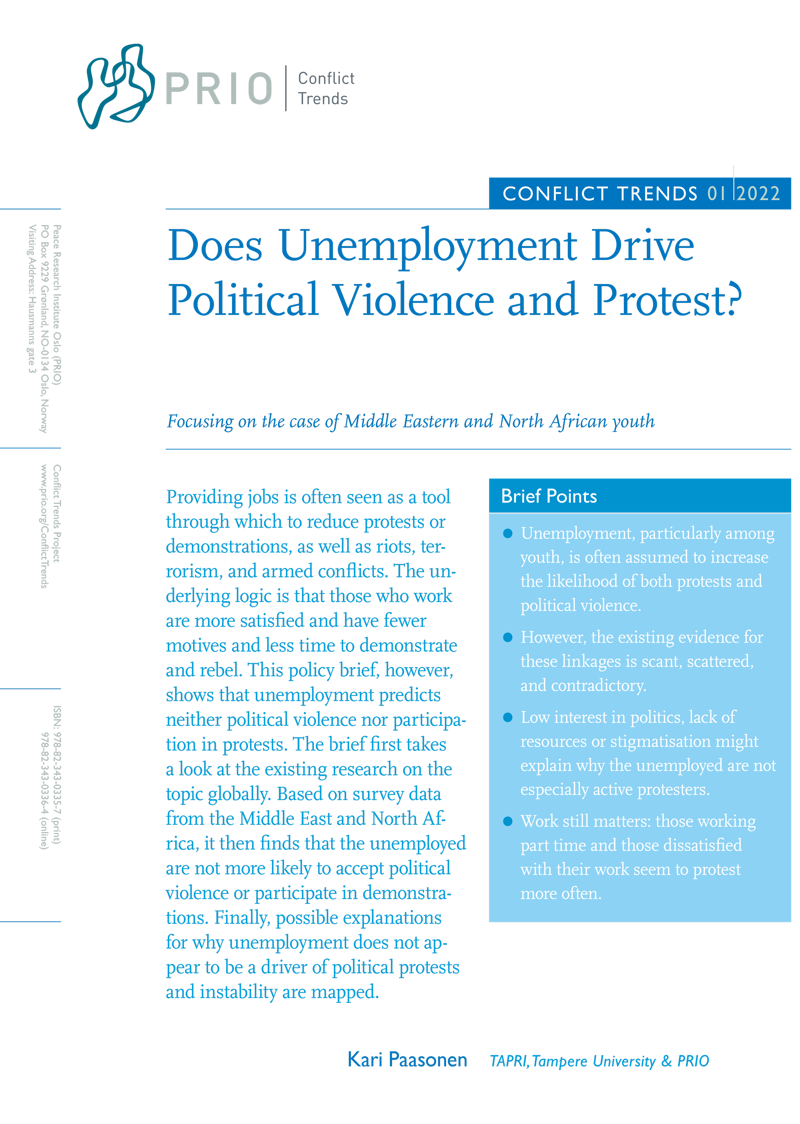
In a new PRIO policy brief, former visiting researcher to PRIO, and doctoral researcher at Tampere Peace Research Institute (TAPRI), Kari Paasonen, writes about youth unemployment and political protests in the Middle East and North Africa.
Paasonen writes that providing jobs is often seen as a tool through which to reduce protests or demonstrations, as well as riots, terrorism, and armed conflicts. The underlying logic is that those who work are more satisfied and have fewer motives and less time to demonstrate and rebel. In this policy brief, however, Paasonen shows that unemployment predicts neither political violence nor participation in protests. The brief first takes a look at the existing research on the topic globally. Based on survey data from the Middle East and North Africa, the policy brief then finds that the unemployed are not more likely to accept political violence or participate in demonstrations. Finally, possible explanations for why unemployment does not appear to be a driver of political protests and instability are mapped. Read the full Policy Brief Does Unemployment Drive Political Violence and Protest? Focusing On the Case of Middle Eastern and North African Youth here





